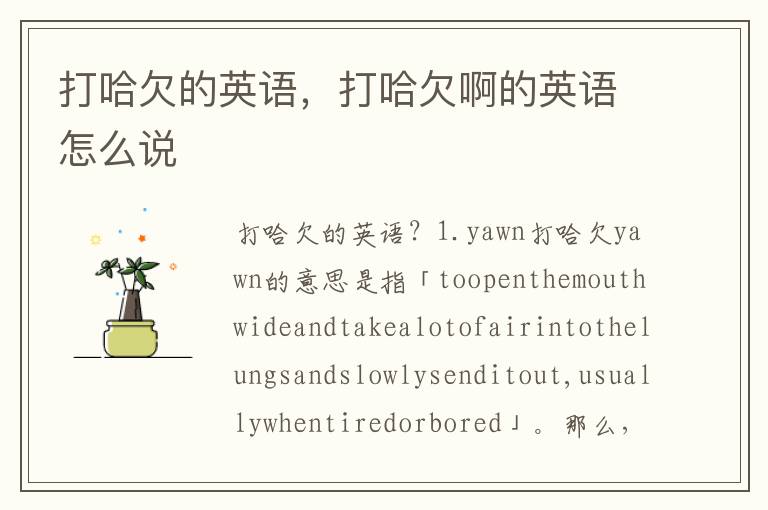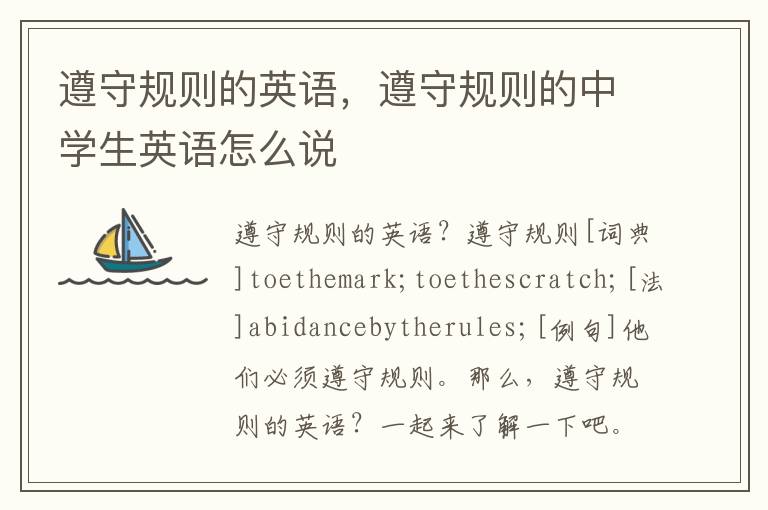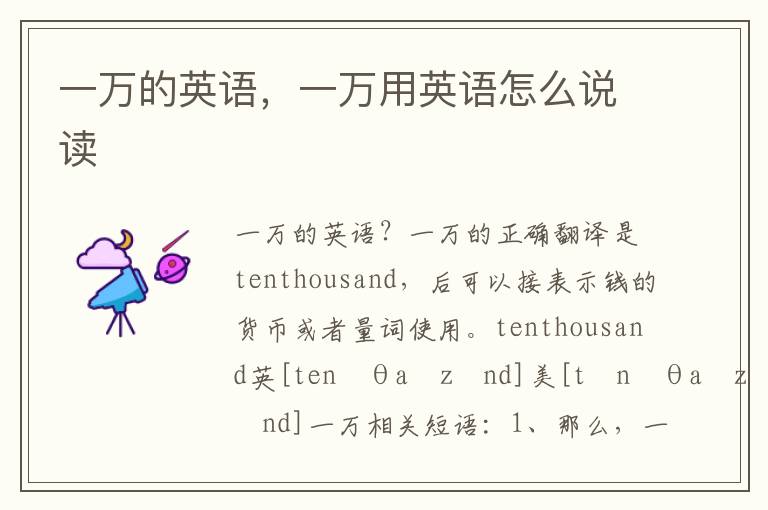【简介】感谢网友“雕龙文库”参与投稿,这里小编给大家分享一些,方便大家学习。
1. 名词
?(1) 不规则名词的单、复数形式要特别记忆:
?man—men, woman—women, child—children, foot—feet, tooth—teeth
?(2) 单数、复数同形的名词:
?fish, sheep, deer, Chinese, Japanese
?(3) 常用复数形的名词:
?trousers, shoes, glasses
?(4) 只有复数形的名词:
?thanks, clothes
?(5) 单数形式但其意为复数的可数名词:
?people, police
?(6) 有生命的名词所有格形式:
?单数名词加's, 复数名词加s', 不是以s结尾的复数名词加?'s?, 如: children's
room
?(7) 无生命的名词所有格用of结构表达:
?如: the capital of China
?(8) 表示并列名词各自所有,在各名词词尾加's:
?如: Tom's and Mary's bikes (两人各自的自行车)
?(9) 表示并列名词共同所有,则在后一个名词的词尾加's:?
如: Tom and Mary's mother (即Tom与Mary是兄妹)
?(10) 关于时间、距离、长度、重量、价格的所有格:
?如: ten minutes' walk, ten miles' journey, a boat's length, two pounds' weight, ten dollars' worth
?(11) 双重所有格:
?a friend of my father's
2. 形容词与副词
?(1) 原级,比较级,最高级词形变化:
?① [单元音+单辅音]的单音节词
?fat—fatter—fattest
?thin—thinner—thinnest
?hot—hotter—hottest
?big—bigger—biggest
?② 以y结尾的双音节词
?easy—easier—easiest
?heavy—heavier—heaviest
?pretty—prettier—prettiest
③ 劣级比较
?less+形容词/副词原级+than
?例: She is less beautiful than Mary.
?④ 两者之间用比较级,在比较级前加定冠词,三者以上用最高级
?例: He is the taller of the two.?
She is the best player of the three.
?⑤ 越……越……的表达法
?例: The days are getting hotter and hotter.
?The more you study, the more you learn.
?⑥ 修饰比较级的词有:much, by far, even, a little, a great deal…
?例: She is much better now.
?? 切记不要用比较级来修饰比较级。
3. 连词
?(1) 动词与*近的主语一致:
?这样的连词有: or, either…or, neither…nor, not only…but also。
?(2) or的用法:
?① 作或者讲
?例: You or your friend has to go to the teachers' office.
?② 作否则讲
?例: Hurry up, or you will be late for school.
?(3) and与but:
?例: He has no money and he is poor.?
He is poor but he is honest.
4. 介词
?(1) 表示时间:
?at: 表示某一时间点
?如: at noon
?on: 表示特定的日子
?如: on Christmas
?in: 表示一段不具体的时间
?如: in the morning, in the Second world war
?? 如表示在某一特定的早上、下午则用on
?如: on a cold morning, on a hot afternoon, on Sunday morning
?during: 表示期间内的某个时期
?如: during the night, during the Second World War
?for: 其后接表示一段时间长度的词
?如: for three days
?through: 表示在整个期间没有间歇
?例: It snowed through the night.
?till/until: 表示动作持续的终点
?例:I studied hard till twelve o'clock last night.
?by: 表示动作完成期限
?例: I'll be back by five o'clock.
?since: 表示某动作的起始点
?例:I have studied English since 1990.
?(2) 表示地点:
?at: 表示较小的地点
?如: arrived at the school gate
?in: 表示较大的地点
?如: arrived in Shanghai
?for: 表示目的地
?例: I'll leave for Shanghai.
?above: 表示上面,上方,其反意词是below
?over: 表示垂直上方,其反意词是under
?例: The dog jumped over the table.
?through: 表示穿过
?如: through the forest
?across: 表示平原上的跨越
?例: I want to walk across the road.
5. 动词
?(1) 动词的时态:
?① 一般现在时
?一般现在时的主要用法有两点:其一表示一经常发生的动作,如: I always go to scho
ol at seven. 其二表示某一真理,事实,如: The earth moves around the sun.
?② 现在完成时
?现在完成时的主要用法有两点:其一表示某一动作发生于过去,并持续下来,到现在完成
。如: I have studied English for two years. 其二表示某动作发生于过去并已结束,但其影响到现在。如: I haven't had my lunch. I'm hungry now.
?与现在完成时连用的词语有:yet, already, before, since, ever, never等。
?其考查要点:
?其一: Have been表示曾经去过,如:I have been to America twice. 说此话的人应
已经回到国内。而He has gone to Japan.则此人目前已到日本去了。
?其二: 截止性动词可以有现在完成时,但不可与表示一段长度的词连用,如: The clas
s has begun. The class has been on for five minutes.
?③ 一般过去时
?表示过去发生的动作,过去的习惯或反复发生的动作。如: Who broke the window? In those days, I studied hard at night every day. 与过去时连用的时间状语有: at that time, ago, in 1949, just now (刚才), last night, yesterday
?④ 一般将来时
?纯将来时的表示法: shall/will+动词原形
?例: I'll leave for Shanghai this evening.
?表示按计划要做或可能做的事: be going to+动词原形
?例: I'm going to help you tonight.
?将来时的特殊表示法
?a. be+coming/leaving/going/starting/arriving
?例: Don't worry. I'm coming.
?b. be about to+动词原形
?例: He is about to leave, when the telephone rings.
?c. 状语从句中用一般现在时表示将来
?例: If it rains tomorrow I won't go to the party.
?(2) 情态动词:
?can: 能,会
?例: He can do it very well.
?may: 许可,可能性
?例: May I use your pen?
?must: 必要,禁止(多表示主观看法)
?例: You mustn't play with fire.
?have to: 不得不(多表示客观之事)
?例: I have to go, because I have a meeting.
?could与would:二者用于现在时表示语气的委婉
?例: Could you help me?
6.句型
(1) 宾语从句:
?由疑问代词或副词引出的宾语从句
?例: Could you tell me where the post office is??
Could you tell me what he said? (what作said的宾语)
?由that引出的宾语从句
?例: They said that they would give me some help. (that 仅作引导词)
?? 宾语从句中的疑问句要用陈述语序。
?例: He asked when we would leave home.
(2) 状语从句:
?状语从句可包括:时间/地点/原因/结果/目的等状语从句。
?例:I will come when I am free.?
I'm late because my bike is broken.?
He went so early that he got a good seat.?
She studied hard so that she would pass the exam.
?? 状语从句要用一般现在时表示将来。
?例: If it rains tomorrow I shall not go to the cinema.
?? 表示在一长动作进行过程中某一动作突然发生则长动作要用进行时态,而突发性 动作要用一般时态。
?例: When I'm reading a book, the telephone rings.
(3) 反意疑问句
?例: She can swim across the river, can't she??
It's a fine day, isn't it??
Marry needs to have a rest, doesn't she??
You have nothing to do, do you??
He seldom does homework, does he??
Don't open the door, will you??
Open the door please, will you??
Let us have a rest, will you??
Let's go, shall we?
(4) 感叹句:
?例. What a hot day it is!?
How hot the weather is!
7. 不定式
?(1) 不定式在句中作宾语,状语:
? 例: It has begun to rain.?
I want to go to the cinema.
?(2) 不定式与疑问词连用:
? 例: I want to know how to work.
? I want to know what to do.
?(3) 不定式的否定句:
? 例: He told me not to do it.
?④ 省略to的不定式:
? 例: I saw him come this morning.
这样的动词有see, hear, watch等感官动词,及have(作让、使讲) make, let.
1. 名词
?(1) 不规则名词的单、复数形式要特别记忆:
?man—men, woman—women, child—children, foot—feet, tooth—teeth
?(2) 单数、复数同形的名词:
?fish, sheep, deer, Chinese, Japanese
?(3) 常用复数形的名词:
?trousers, shoes, glasses
?(4) 只有复数形的名词:
?thanks, clothes
?(5) 单数形式但其意为复数的可数名词:
?people, police
?(6) 有生命的名词所有格形式:
?单数名词加's, 复数名词加s', 不是以s结尾的复数名词加?'s?, 如: children's
room
?(7) 无生命的名词所有格用of结构表达:
?如: the capital of China
?(8) 表示并列名词各自所有,在各名词词尾加's:
?如: Tom's and Mary's bikes (两人各自的自行车)
?(9) 表示并列名词共同所有,则在后一个名词的词尾加's:?
如: Tom and Mary's mother (即Tom与Mary是兄妹)
?(10) 关于时间、距离、长度、重量、价格的所有格:
?如: ten minutes' walk, ten miles' journey, a boat's length, two pounds' weight, ten dollars' worth
?(11) 双重所有格:
?a friend of my father's
2. 形容词与副词
?(1) 原级,比较级,最高级词形变化:
?① [单元音+单辅音]的单音节词
?fat—fatter—fattest
?thin—thinner—thinnest
?hot—hotter—hottest
?big—bigger—biggest
?② 以y结尾的双音节词
?easy—easier—easiest
?heavy—heavier—heaviest
?pretty—prettier—prettiest
③ 劣级比较
?less+形容词/副词原级+than
?例: She is less beautiful than Mary.
?④ 两者之间用比较级,在比较级前加定冠词,三者以上用最高级
?例: He is the taller of the two.?
She is the best player of the three.
?⑤ 越……越……的表达法
?例: The days are getting hotter and hotter.
?The more you study, the more you learn.
?⑥ 修饰比较级的词有:much, by far, even, a little, a great deal…
?例: She is much better now.
?? 切记不要用比较级来修饰比较级。
3. 连词
?(1) 动词与*近的主语一致:
?这样的连词有: or, either…or, neither…nor, not only…but also。
?(2) or的用法:
?① 作或者讲
?例: You or your friend has to go to the teachers' office.
?② 作否则讲
?例: Hurry up, or you will be late for school.
?(3) and与but:
?例: He has no money and he is poor.?
He is poor but he is honest.
4. 介词
?(1) 表示时间:
?at: 表示某一时间点
?如: at noon
?on: 表示特定的日子
?如: on Christmas
?in: 表示一段不具体的时间
?如: in the morning, in the Second world war
?? 如表示在某一特定的早上、下午则用on
?如: on a cold morning, on a hot afternoon, on Sunday morning
?during: 表示期间内的某个时期
?如: during the night, during the Second World War
?for: 其后接表示一段时间长度的词
?如: for three days
?through: 表示在整个期间没有间歇
?例: It snowed through the night.
?till/until: 表示动作持续的终点
?例:I studied hard till twelve o'clock last night.
?by: 表示动作完成期限
?例: I'll be back by five o'clock.
?since: 表示某动作的起始点
?例:I have studied English since 1990.
?(2) 表示地点:
?at: 表示较小的地点
?如: arrived at the school gate
?in: 表示较大的地点
?如: arrived in Shanghai
?for: 表示目的地
?例: I'll leave for Shanghai.
?above: 表示上面,上方,其反意词是below
?over: 表示垂直上方,其反意词是under
?例: The dog jumped over the table.
?through: 表示穿过
?如: through the forest
?across: 表示平原上的跨越
?例: I want to walk across the road.
5. 动词
?(1) 动词的时态:
?① 一般现在时
?一般现在时的主要用法有两点:其一表示一经常发生的动作,如: I always go to scho
ol at seven. 其二表示某一真理,事实,如: The earth moves around the sun.
?② 现在完成时
?现在完成时的主要用法有两点:其一表示某一动作发生于过去,并持续下来,到现在完成
。如: I have studied English for two years. 其二表示某动作发生于过去并已结束,但其影响到现在。如: I haven't had my lunch. I'm hungry now.
?与现在完成时连用的词语有:yet, already, before, since, ever, never等。
?其考查要点:
?其一: Have been表示曾经去过,如:I have been to America twice. 说此话的人应
已经回到国内。而He has gone to Japan.则此人目前已到日本去了。
?其二: 截止性动词可以有现在完成时,但不可与表示一段长度的词连用,如: The clas
s has begun. The class has been on for five minutes.
?③ 一般过去时
?表示过去发生的动作,过去的习惯或反复发生的动作。如: Who broke the window? In those days, I studied hard at night every day. 与过去时连用的时间状语有: at that time, ago, in 1949, just now (刚才), last night, yesterday
?④ 一般将来时
?纯将来时的表示法: shall/will+动词原形
?例: I'll leave for Shanghai this evening.
?表示按计划要做或可能做的事: be going to+动词原形
?例: I'm going to help you tonight.
?将来时的特殊表示法
?a. be+coming/leaving/going/starting/arriving
?例: Don't worry. I'm coming.
?b. be about to+动词原形
?例: He is about to leave, when the telephone rings.
?c. 状语从句中用一般现在时表示将来
?例: If it rains tomorrow I won't go to the party.
?(2) 情态动词:
?can: 能,会
?例: He can do it very well.
?may: 许可,可能性
?例: May I use your pen?
?must: 必要,禁止(多表示主观看法)
?例: You mustn't play with fire.
?have to: 不得不(多表示客观之事)
?例: I have to go, because I have a meeting.
?could与would:二者用于现在时表示语气的委婉
?例: Could you help me?
6.句型
(1) 宾语从句:
?由疑问代词或副词引出的宾语从句
?例: Could you tell me where the post office is??
Could you tell me what he said? (what作said的宾语)
?由that引出的宾语从句
?例: They said that they would give me some help. (that 仅作引导词)
?? 宾语从句中的疑问句要用陈述语序。
?例: He asked when we would leave home.
(2) 状语从句:
?状语从句可包括:时间/地点/原因/结果/目的等状语从句。
?例:I will come when I am free.?
I'm late because my bike is broken.?
He went so early that he got a good seat.?
She studied hard so that she would pass the exam.
?? 状语从句要用一般现在时表示将来。
?例: If it rains tomorrow I shall not go to the cinema.
?? 表示在一长动作进行过程中某一动作突然发生则长动作要用进行时态,而突发性 动作要用一般时态。
?例: When I'm reading a book, the telephone rings.
(3) 反意疑问句
?例: She can swim across the river, can't she??
It's a fine day, isn't it??
Marry needs to have a rest, doesn't she??
You have nothing to do, do you??
He seldom does homework, does he??
Don't open the door, will you??
Open the door please, will you??
Let us have a rest, will you??
Let's go, shall we?
(4) 感叹句:
?例. What a hot day it is!?
How hot the weather is!
7. 不定式
?(1) 不定式在句中作宾语,状语:
? 例: It has begun to rain.?
I want to go to the cinema.
?(2) 不定式与疑问词连用:
? 例: I want to know how to work.
? I want to know what to do.
?(3) 不定式的否定句:
? 例: He told me not to do it.
?④ 省略to的不定式:
? 例: I saw him come this morning.
这样的动词有see, hear, watch等感官动词,及have(作让、使讲) make, let.












